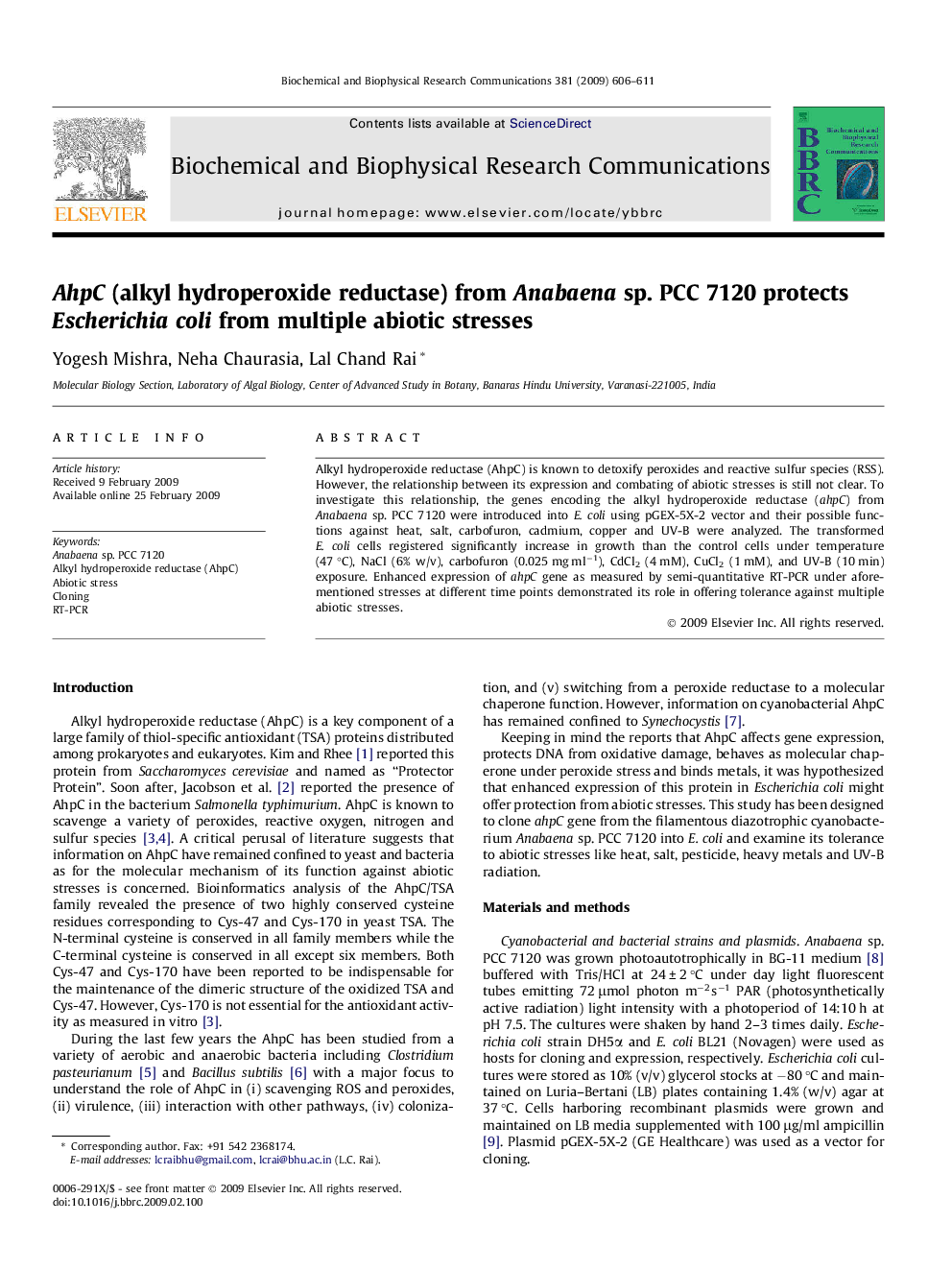| Article ID | Journal | Published Year | Pages | File Type |
|---|---|---|---|---|
| 10766072 | Biochemical and Biophysical Research Communications | 2009 | 6 Pages |
Abstract
Alkyl hydroperoxide reductase (AhpC) is known to detoxify peroxides and reactive sulfur species (RSS). However, the relationship between its expression and combating of abiotic stresses is still not clear. To investigate this relationship, the genes encoding the alkyl hydroperoxide reductase (ahpC) from Anabaena sp. PCC 7120 were introduced into E. coli using pGEX-5X-2 vector and their possible functions against heat, salt, carbofuron, cadmium, copper and UV-B were analyzed. The transformed E. coli cells registered significantly increase in growth than the control cells under temperature (47 °C), NaCl (6% w/v), carbofuron (0.025 mg mlâ1), CdCl2 (4 mM), CuCl2 (1 mM), and UV-B (10 min) exposure. Enhanced expression of ahpC gene as measured by semi-quantitative RT-PCR under aforementioned stresses at different time points demonstrated its role in offering tolerance against multiple abiotic stresses.
Related Topics
Life Sciences
Biochemistry, Genetics and Molecular Biology
Biochemistry
Authors
Yogesh Mishra, Neha Chaurasia, Lal Chand Rai,
